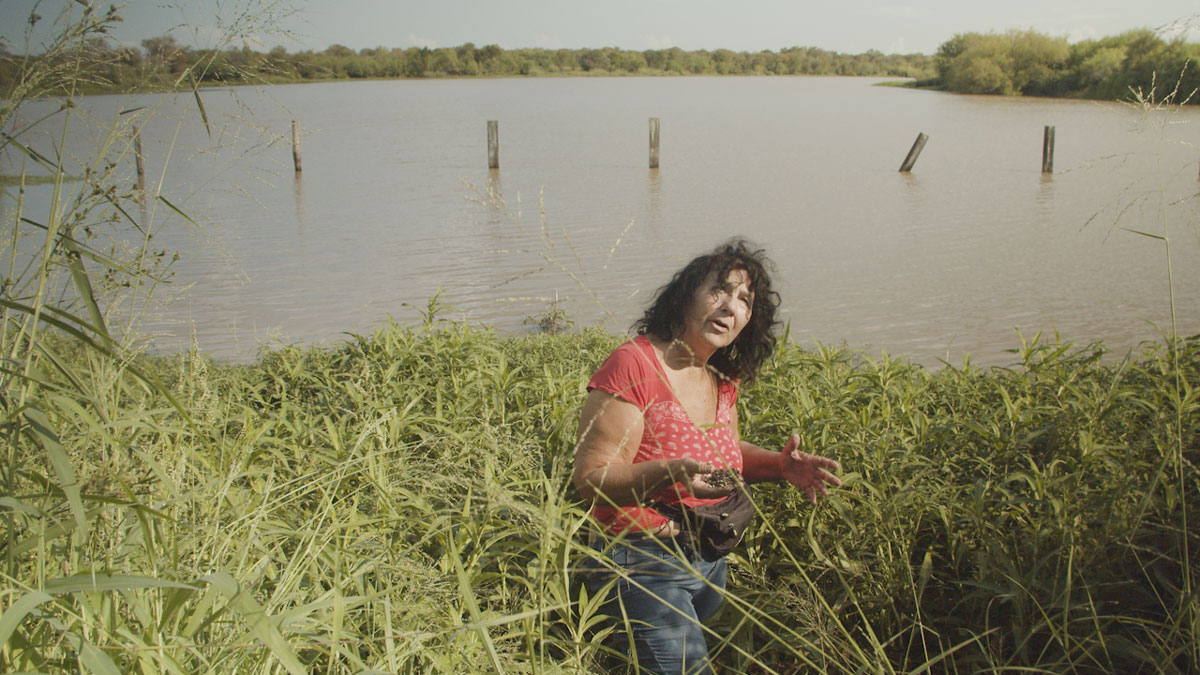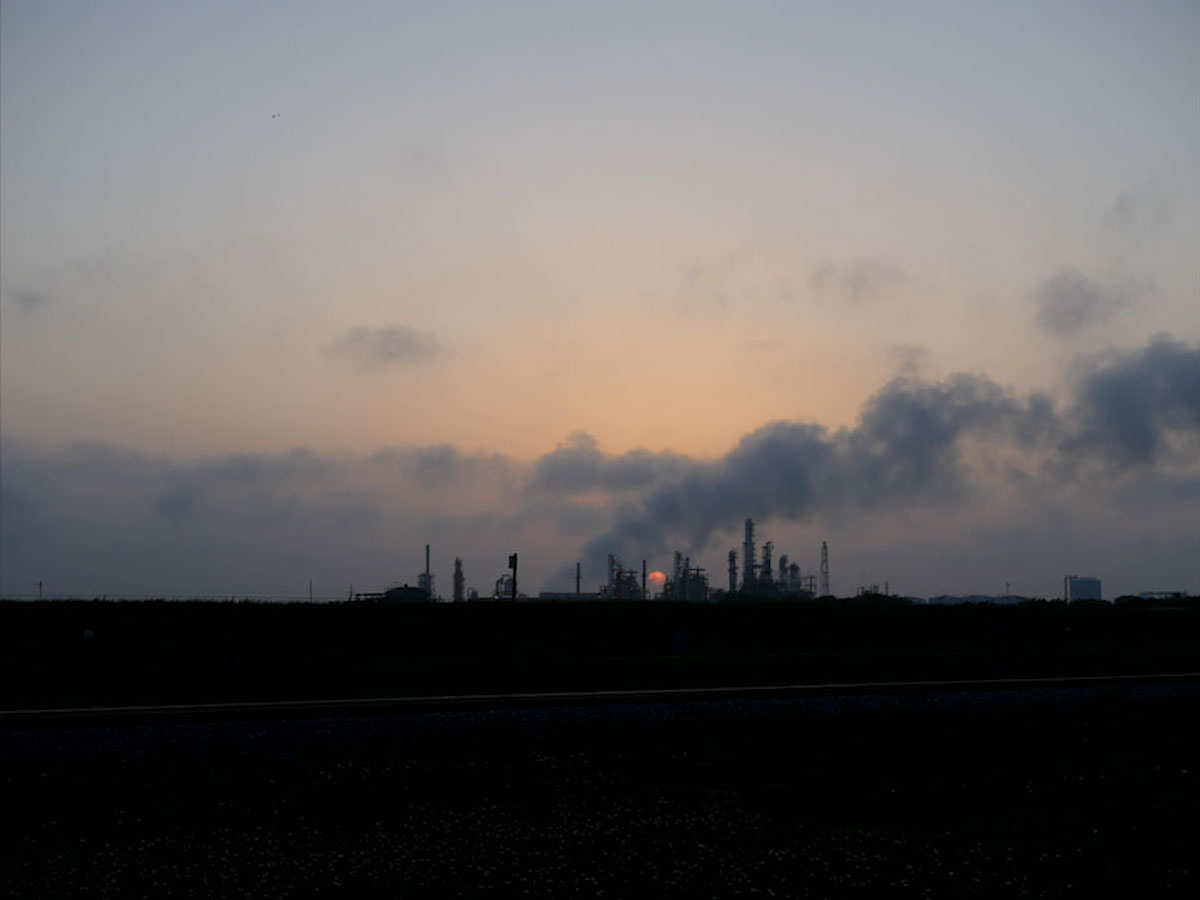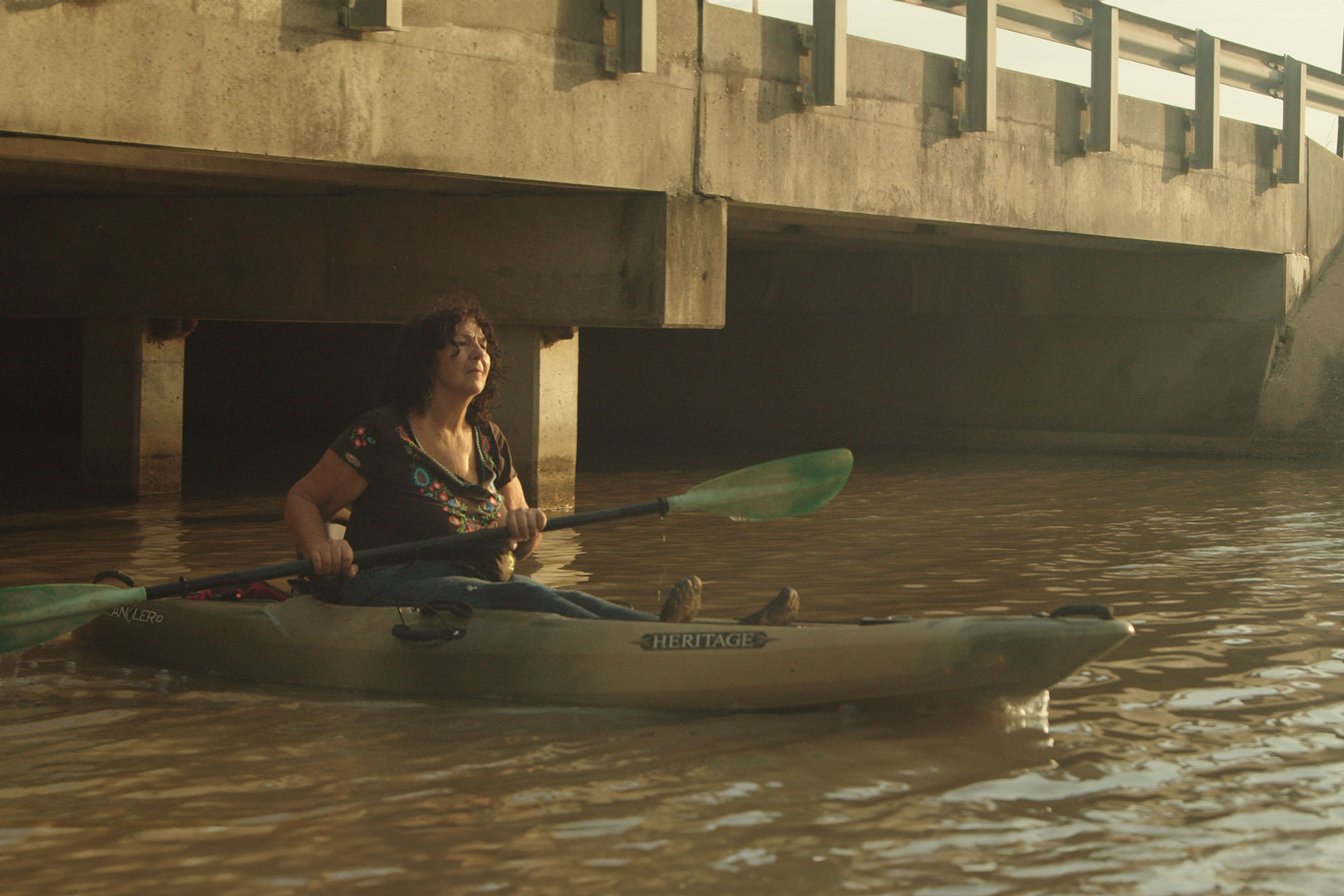Before Robert F. Kennedy Jr. became a top science adviser to Donald Trump — a once-and-future president who openly denies environmental science — the dynastic New York lawyer was such a prominent environmentalist that he literally became a “waterkeeper,” someone dedicated to conserving natural bodies of water from pollution. For more than 20 years, Kennedy helped lead the “Waterkeeper Alliance” he co-founded until leaving in 2020 to "devote himself” to vaguely defined “other issues.” That story ended, as the world now knows, with Kennedy launching a third-party 2024 presidential bid before dropping out at a critical moment to endorse Trump.
One of Kennedy’s fellow waterkeepers, Diane Wilson, 76, remembers the evolution in Kennedy’s personality as he shifted from environmentalist to conspiracy theorist and Trump supporter. In 2019, she won a $50 million lawsuit against a Taiwanese plastics company called Formosa Plastics Corporation, Waterkeeper v. Formosa, and Kennedy reached out to congratulate her and to offer his future support.
“Bobby called me a number of times when I won that, and he told me how much he liked and admired me,” Wilson told Salon. As Kennedy began to move to the right, however, his personality changed. “Not too long ago, but before he went over to Trump, he called me up in the middle of the night. I was asleep, it was like midnight here, and he asked me if I would be an elector [for the Electoral College] and said he needed someone he could trust. He did that twice in the middle of the night.”
Wilson said yes because she believed in Kennedy’s passion for the environment, and Kennedy later said he would look for a lawyer to help her in a New Jersey case where she and three others had been arrested for blocking Formosa Plastics Corporation entrance gates.
“He said give him two weeks,” Wilson said. “He never called back.” Later he endorsed Trump. (Kennedy did not respond to Salon’s requests for comment.)
 Diane Wilson finding plastic pellets outside Formosa (Uriah Herr)Now the original so-called “waterkeeper” is preparing to work for a president who plans on gutting the Environmental Protection Agency (EPA). As millions of Americans despair for Earth’s future, Wilson has advice for those who still want to protect the planet: If people have the confidence and work ethic to educate themselves with reliable scientific sources, and also possess faith that even the most conservative Trump supporters can change their minds, they will make a meaningful difference.
Diane Wilson finding plastic pellets outside Formosa (Uriah Herr)Now the original so-called “waterkeeper” is preparing to work for a president who plans on gutting the Environmental Protection Agency (EPA). As millions of Americans despair for Earth’s future, Wilson has advice for those who still want to protect the planet: If people have the confidence and work ethic to educate themselves with reliable scientific sources, and also possess faith that even the most conservative Trump supporters can change their minds, they will make a meaningful difference.
She speaks from experience. That is how Wilson held Formosa Plastics Corporation accountable for polluting the bay in her multigenerational Texas community, Calhoun County, with a population under 20,000. Unlike Kennedy, Wilson undertook her crusade without the advantages of inherited wealth. She is a fourth-generation fisherwoman, one whose skills as a shrimp boat captain were so undeniable that she became indispensable in an industry filled with casual sexism. Wilson has a track record of taking on powerful polluters and winning. In 1994, she successfully advocated for “zero discharge” agreements from Formosa and the aluminum manufacturer Alcoa to stop liquid effluent pollution. She was also prominently involved in protests for victims of the 2010 Deepwater Horizon oil spill and the 1984 Union Carbide leak.
In 2019 a U.S. district judge found Formosa’s irresponsible practices violated the Clean Water Act.
Even more impressively, she did all of these things with nothing but a high school education while living on $475 a month. Her most prized possessions seem to be her intellect and work ethic.
“I would get information,” Wilson recalled when discussing her work in Waterkeeper v. Formosa. Sometimes employees at Formosa gave her documents so she could figure out what was going on inside the plant. Other times she visited the bay and engaged in her own down-and-dirty research. Even though her obsession caused her to lose her job, her marriage, her house, her boat and many personal relationships, Wilson enthusiastically educated herself on chemistry, ecology and every other necessary branch of science. She was similarly energetic in learning about the law.
She found that plastics contain dangerous chemicals like ethylene chloride and vinyl chloride, which Formosa was leaking into the water. Plastics in general, Wilson discovered, contain toxins like phthalates and bisphenols, which can be dangerous when humans ingest them. They have been linked to diseases from cancer and respiratory diseases to infertility and yet, they are unavoidable, contaminating everything from air to water to food.
Want more health and science stories in your inbox? Subscribe to Salon's weekly newsletter Lab Notes.
Thanks to Wilson’s ground work, in 2019 a U.S. district judge found Formosa’s irresponsible practices violated the Clean Water Act. America’s most powerful bench deemed that Formosa had to improve its wastewater and stormwater discharge facilities, and the State of Texas had to create a Matagorda Bay Mitigation Trust to support environmental projects. The company was additionally required to pay $50 million to the community it had polluted.
Wilson achieved all of this first by learning science from reliable sources. Her approach was best embodied by her work collecting thousands of plastic pellets in the bay that had been dumped there by Formosa. She did it one at a time, patiently, and fact-checking her work every step of the way.
“I got as close to the real events that were happening as possible,” Wilson said. “If you're looking for scientific stuff, you go to the studies. You read the studies. You don’t just take an article and read that. You go to the primary sources.” Once she had all of the evidence she needed, she filed a citizen’s clean water suit. Between the thousands of samples and the airtight legal case, Wilson prevailed.
 Formosa Plastics plant in Point Comfort, TX (Uriah Herr)Wilson was able to protect her community, but in the larger scheme, the world is overrun with pollution. These problems must be fixed on a global level, not a local one. That is daunting — but director Fax Bahr and producer C.C. Goldwater, who are in post-production on a documentary about Wilson’s life called “Waterkeeper,” believe spreading her message will help. All three have the chops to make it happen: Wilson has already been the subject of a 2005 documentary about her early environmentalist work, “Texas Gold.” Bahr co-directed the acclaimed 1991 documentary “Hearts of Darkness: A Filmmaker’s Apocalypse” about the creation of the 1979 movie “Apocalypse Now.” Finally Goldwater famously produced the 2006 documentary “Mr. Conservative” about her grandfather, Senator Barry Goldwater of Arizona, the Republican presidential nominee in 1964 and the widely acknowledged founding father of modern American conservatism.
Formosa Plastics plant in Point Comfort, TX (Uriah Herr)Wilson was able to protect her community, but in the larger scheme, the world is overrun with pollution. These problems must be fixed on a global level, not a local one. That is daunting — but director Fax Bahr and producer C.C. Goldwater, who are in post-production on a documentary about Wilson’s life called “Waterkeeper,” believe spreading her message will help. All three have the chops to make it happen: Wilson has already been the subject of a 2005 documentary about her early environmentalist work, “Texas Gold.” Bahr co-directed the acclaimed 1991 documentary “Hearts of Darkness: A Filmmaker’s Apocalypse” about the creation of the 1979 movie “Apocalypse Now.” Finally Goldwater famously produced the 2006 documentary “Mr. Conservative” about her grandfather, Senator Barry Goldwater of Arizona, the Republican presidential nominee in 1964 and the widely acknowledged founding father of modern American conservatism.
Bahr, Goldwater and Wilson have already found people willing to help with their new project.
“We had reluctance from a lot of people when we went out for financing, so we really pulled up our boots strings and did it on our own,” Goldwater said. “Then we had a lot of gracious people that gave us money.”
Bahr added that, because they are “beholden to no one,” they do not fear retaliation. They can share this story without being restrained by backers.
“We're going to take this thing out into the community,” Bahr promised. “We're going to show this film at community screenings. We're going to have Diane speak, if she's got the bandwidth to do it. It's community organizing.”
People who experience hardships due to pollution will ultimately stand by their community, even if they stubbornly stick to their political convictions.
In addition to raising the film’s profile, however, the biggest challenge facing the makers of “Waterkeeper” is that millions of people deny environmental science for political reasons. But Wilson believes, based on her experience winning the Formosa lawsuit, that many of these minds can be changed. Environmental activists just have to make it clear that conservatives don’t have to be “environmentalists” to support their causes. They simply need to share the same moral values.
“The workers that I work with, the fishermen that I work with, the ranchers that I work with, they are all Republicans,” Wilson said. “When I was talking to the workers who were out there helping me get the pellets out of the bay, they would say, ‘I’m no tree-hugger, but I care about the bay,’ or ‘I’m no tree-hugger, but I care about the children.’ I think the people on the bottom, there was a commonality with the bay and the children and their community.”
This does not mean people changed their minds politically; Calhoun County voted overwhelmingly for Trump in all three of his campaigns. Wilson admits to being frustrated by this, but points to the objective reality that many Trump supporters still supported her efforts to protect their natural resources. Some even joke about it.
“I’ve got a guy who's helping me on a boat, and he takes me down the river and is checking out Dow Chemical,” Wilson said. “After a while he just turned around and said, ‘Diane, you're a Democrat. Get off my boat!’ It's a big joke, and then he just laughs. I know there is stuff out there in DC, and I just can't even imagine it. But in the work that I do, we do the work and we have a commonality.”
Extrapolated to the scale of national and international politics, Wilson anticipates the same result: People who experience hardships due to pollution will ultimately stand by their community, even if they stubbornly stick to their political convictions.
“They're living right next to that plant!” Wilson said, recalling the logic of her Trump-supporting friend. “They may be Republicans, but they're the ones who are suffering from all of the pollution that's coming out of there.”
It wasn’t just pollution that challenged Wilson. She overcame other obstacles, such as the multiple ways in which her sex was used against her. With the shrimp fishermen, she encountered sexism and was sometimes told having a woman on a boat was “bad luck,” but she eventually earned her colleagues’ respect by proving her aptitude. The misogyny she experienced when fighting Big Plastic, by contrast, was far more intense. She was called a lesbian, a whore, a bad mother, hysterical, a crazy woman.
“Oh God, they would call her ‘girl,’” Goldwater said, adding that class and education were also held against Wilson by her opponents. Amy Blanchett, a senior communications representative at Formosa Plastics, told Salon that the company "takes allegations of this nature very seriously, as they do not align with our values of professionalism, respect and integrity." They added that "to our knowledge, Formosa Plastics has never referred to Ms. Wilson in a derogatory manner, nor have we made any statements similar to those described in your inquiry." (Regarding the legacy of the 2019 lawsuit, Formosa Plastics referred Salon to a video claiming a commitment to environmental responsibility.)
If Wilson can defend the environment despite the odds stacked against her as an impoverished Texas fisherwoman, Goldwater and Bahr believe anyone can.
We need your help to stay independent
“That's really the whole reason for doing this film,” Bahr said. “I interviewed a bunch of Waterkeepers before choosing to go with Diane's story, and it's because with absolutely nothing, zero resources, a high school education, living on $475 bucks a month, she did it alone. She brought to account one of the largest petrochemical manufacturers on the planet.”
He added, “That's what people can do.”
The filmmakers hope that people who see or hear Wilson’s story will be inspired to be proactive in environmental issues in their own backyards. Producer C.C. Goldwater observed that Kennedy is proof of how people can evolve on these issues, albeit not always for the better. When editing a 2007 reedition of her grandfather’s famous 1960 manifesto, “The Conscience of a Conservative,” she included a Kennedy essay in which the then-Waterkeeper argued Republicans had become too extreme. Goldwater speculated that Kennedy may still recognize the importance of environmentalism, but in order to work with Trump is deliberately setting those values aside.
“I don't think that Bobby has gone away from being an environmentalist, I really don't,” Goldwater said. “But I think he's gotten off track a bit to go to the Republican Party with a president like we have.”
CORRECTION: A previous version of this article misattributed the court where Wilson won her case: It was a U.S. district court, not the Supreme Court. This article has been updated.
Read more
about the environment


